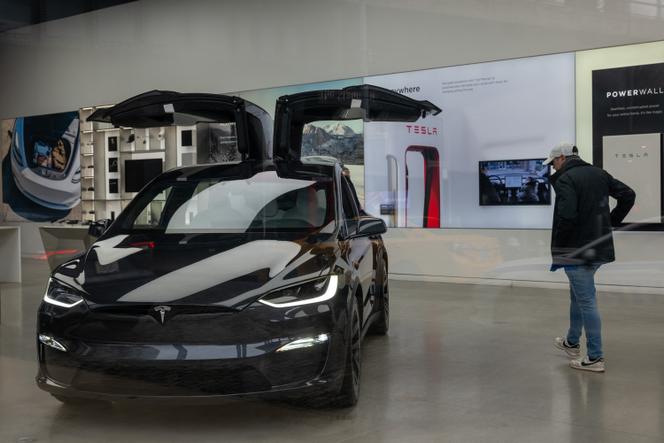


They were nicknamed "The Magnificent Seven," but now they are just six. Tesla, Elon Musk's company, has been kicked out of this informal club invented by Wall Street, which includes the most successful high-tech companies in the US such as Microsoft, Apple, Nvidia, Amazon, Alphabet and Meta.
That happened for a good reason: Tesla has become a liability among those giants, which account for around 30% of the S&P 500 index. Its shares have lost more than a quarter of their value since the start of the year and the firm is now worth just $600 billion (€557 billion). That is still twice as much as Toyota, 50 times more than Renault, but far less than the 1,300 billion topped in the fall of 2021.
Significant changes have occurred. Certainly, Elon Musk's increasingly right-wing drift and his setbacks with social network X raise questions. But that is not the real issue: Tesla is not quite the futuristic company it used to be, dedicated to artificial intelligence and robotics, as Musk claims.
Its boss was counting on saving the planet from climate change, but today he is focusing on the fight against the so-called "DEI" criteria (diversity, equity, inclusion), which promotes the representation of minorities and women in businesses. He keeps announcing the driverless car, but despite progress, it is not here yet. He wants to become a champion of artificial intelligence, but he plans to develop these initiatives outside Tesla. However, he is seeking 25% of the car manufacturer's voting rights, despite a Delaware judge recently nullifying his $56 billion compensation package.
For now, the company has become a simple carmaker, slashing prices to defend its market share, which has reduced its operating margin from 16.8% to 9.2% of sales by 2023. This strategy has allowed it to sweep the domestic electric vehicle market, with 650,000 vehicles sold out of 812,000 last year, far ahead of Ford (61,600 units, or 3.8% of production) and GM (39,000). Despite this, it didn't prevent the company from being dethroned as the global leader in electric vehicles, a position taken by China's BYD by the end of 2023. The Austin, Texas-based company only proposes two aging models (Y and 3). Its Cybertruck, a futuristic vehicle, sells very few units.
While progressive Californians are delighted to own an electric vehicle, Midwesterners prefer their good old combustion engine. Quite simply, because as soon as the cold weather arrives, the capacity of electric batteries is limited and vehicles become unreliable. Electric trucks are particularly hard sellers in rural areas, as they are not considered to be very efficient for towing heavy loads or crossing countryside and forests.
You have 45% of this article left to read. The rest is for subscribers only.
